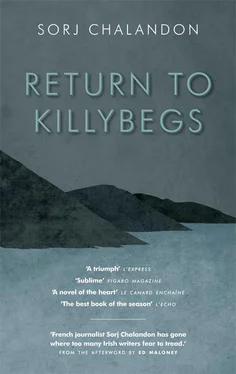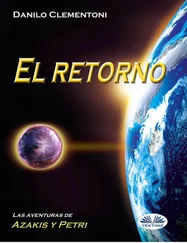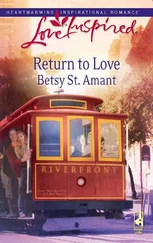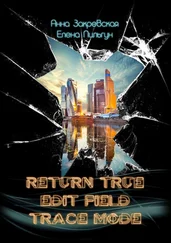— It’s been a long old road, eh? he said before going back to his table.
I raised my glass to eye level to say goodbye in turn.
It was at Crumlin, the day after I arrived. My first time in prison. Before being locked up, I had asked to go to the bog. I’d kept a stub of pencil in my sock, a dusting of lead wrapped in a splinter of wood. I don’t know what came over me. I must have believed I was still free, behind the closed door of a pub urinal. The wall was a dirty grey and I wrote ‘IRA’ in large letters. And then I went into my cell.
The following day, our division could talk of nothing else. The lads were in hysterics over it. But who had done it? Who could really have boasted about belonging to the IRA when everyone in the place was there for being in it? Who had thought they were in a Dublin public toilet? Who had shown off to frighten future bladders?
Mickey was in charge of our washing. He found the pencil, forgotten in the turned-up end of one of my trouser legs. I made him promise not to tell. So he promised. But for him, Tyrone Meehan would always be that kid from the Crum who boasted about the IRA on a toilet wall because he was the only one in the place who didn’t belong to the secret army. Frank was guarding the memory of my youthful foolishness.

That evening in the Thomas Ashe I felt like I was in their club. For the first time I wasn’t at home, but in their space. I felt I had intruded on the beauty of the brave.
— We’re going, Tyrone. Do you want your jacket?
Sheila was standing. Jack was asleep on the table, his head on his arms. The Thomas Ashe was emptying slowly.
— See you, Tyrone!
— Safe home, Meehan!
Chairs were being piled up and tables dragged across the floor; there was the sound of glasses being stacked, the iron shutter of the bar being noisily lowered. The murmur of drunkenness, of laughter, of beer, of overly loud voices. I put my jacket on. My cap. I staggered across the room. On a wall was a framed portrait of Danny, crossed with a black veil. I paused. The sudden neon lights splashed across his forehead and expression.
Lieut. Daniel ‘Danny’ Finley
1924–1969
2nd Batt. C Company
Óglaigh na hÉireann
His eyes were raised. He wasn’t looking at me. He had decided to leave me in peace. I felt Jack’s hand in mine. We went out into the night that smelled of rain. I raised my collar and looked at the street, the low houses, the dark windows, the heavy shadows staggering home drunk. I dropped Jack’s hand. I raised my fist and roared.
— Éirinn go Brách!
— Éirinn go Brách! shouted my son in turn.
And then I let out a long braying. A dreadful wail, the cry of the donkey.
11. Killybegs, Thursday, 28 December 2006
Jack came for nothing. He had promised his mother he would come, so he did, end of story. An icy visit. It was just two strangers in the room.
— How are you?
He raised his eyes from the ceramic mug he was holding in both hands to warm himself up. He looked at me. He drank the last drop of tea.
— Are you speaking to me?
I got up. The fire was dying with the cold.
— Are you speaking to Jack Meehan, is that it?
I turned my back on him and poked at some embers. My words were quiet.
— I’m speaking to my son.
— Your son? Do you mean that I have a father?
— You have a father, yes.
I placed a damp log on the flames.
Jack shouted.
— I had a father for twenty years, and then he died.
— No. He’s in front of you, he’s stirring the fire.
He pushed his chair back. It fell over. He brushed his mug aside with an elbow. A broken crash. He was standing.
— Stop it! You’re no longer anything to me, understand? Nothing! You’re a traitor! You’ve been a traitor for twenty-six years! You admitted it, twenty-six years! It was a traitor who came to visit me in prison! Do you remember when I got out? Can you remember? I was beside you in the car and you told me you were proud of me. Remember? Proud of me!
I took my place again at my father’s table.
— Proud of me? I spent twenty years in your British friends’ prisons! Twenty fucking years! And you’re proud of me?
— Do you want some more tea?
— You betrayed Mam, betrayed Ireland, betrayed every living thing close to us. You are my traitor. You no longer even have the right to be living here!
I looked at Jack. There was so much Meehan in him. I nearly smiled in weariness. I told myself that he was all that was left to me.
— How can you look me in the eye? Huh? How can you?
— I’m looking at my son.
— Never say that word again, never! I forbid it.

As a child, Jack loved Killybegs. He used to carry the water from the well, sit dreaming in front of the candles, make fantastic shadows against the walls in the light from the storm-lamp, walk down by the harbour and laugh delightedly at the boats. For hours on end he would climb up and down the bare hills, over endless low stone walls, battling with reddish-brown bracken that came up as far as his waist. He would dream of islands as far as the eye could see, rising like froth on the ocean. Sheila would want to go home after three days, but Jack would beg her to stay a little longer. For him, it was a house of trappers, of Indians, a cottage from before the Famine, when people hadn’t yet begun having to count the steaming potatoes on their plates. Even once he was a Fianna, he remained a child. In Belfast, he had the furrowed brow, hands calloused from holding bricks, he smelled of petrol and rage. I recognized the same intensity as Tom Williams in his eyes and I was afraid for him. But here, back in Killybegs, he’d throw a fishing rod over his shoulder, stalk mullet and come back along the bog, whacking the thickets with the branch of an oak to keep the bad fairies away.
One day in 1979 with Dave ‘Snoopy’ Barrett, Jack shot down a policeman on Castle Street. Jack was driving the getaway motorbike. Snoopy shot three times at the uniforms barring their path. Farther up on the Glen Road, they ran into some of the army’s armoured cars. Jack decided to spin off to the left, into a narrow street. A Republican taxi was following close behind. Snoopy stretched out his arm to warn the driver they were turning, the gun forgotten in his outstretched hand. The soldiers gave chase. Jack and Snoopy hit a kerb and surrendered without a fight. They waited there, faces against the ground and hands behind their heads. When they were arrested, the death of the policeman Jack had shot was not yet known. Dozens of residents had come out of their brick houses to watch. Snoopy shouted his name to the small crowd. Jack cried out, ‘Meehan! From Dholpur Lane!’ The British didn’t shoot. They left them alive. They were forced to try them. Because that day, in that little back street off Glen Road, dozens of nationalists saw that Dave Barrett and Jack Meehan had been arrested by the army. And that they had climbed into the armoured cars alive. The British would shoot to kill. That fact horrified some people on our side. Not me. I’ve never known the enemy to be honourable. I’ve tried to kill him, he’s tried to shoot me down. War has never been any other way.
My son was sentenced to a life behind bars: twenty-one years. He was freed in 2000 with the last remaining Republican prisoners and he left prison in a sadder state than he went in.
— Where’s our flag?
That had been the first thing to come out of his mouth. We were driving back from Long Kesh. Sheila was in the back seat and Jack was beside me. She was holding his hand over the armrest and we were silent. Ireland was welcoming my son home. A cloudless sky, a desert sun and a gentle breeze. Jack had his forehead against the glass. He would have to heal twenty-one barbed-wire years. And there on the side of the road, in a wire-fenced yard, in the shadow of a school, the British flag was rippling. Large and brand-new.
Читать дальше













